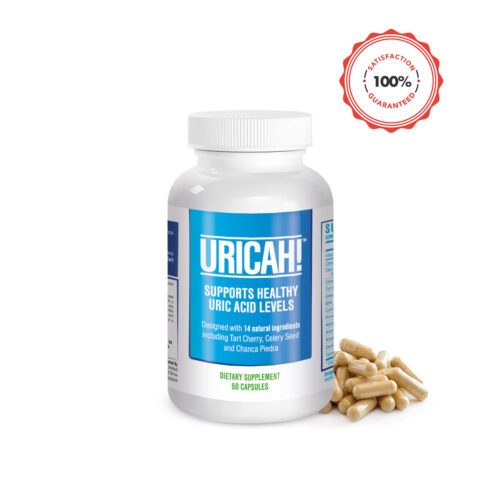Vegetables are a key part of any healthy diet, but if you’re living with gout, you might have heard mixed messages about whether some vegetables are safe to eat. The truth is, most vegetables are beneficial for people managing uric acid levels—and only a few need to be eaten with care.
Do Vegetables Raise Uric Acid?
Gout is caused by high levels of uric acid in the blood, which can lead to painful joint inflammation. While purines in food break down into uric acid, not all purines affect the body the same way. The purines found in vegetables seem to have a much milder effect on uric acid levels compared to those found in meat and seafood.
This means vegetables are largely safe and even helpful for managing gout, thanks to their fibre, water content, and anti-inflammatory nutrients.
Vegetables and Uric Acid Risk
Vegetables can be grouped based on how they typically impact uric acid levels:
Low Risk
These are highly recommended for a gout-friendly diet:
- Leafy greens (spinach, lettuce, silverbeet)
- Carrots, cucumbers, and zucchini
- Pumpkin and sweet potato
- Capsicum, tomatoes, and celery
- Broccoli and green beans
These vegetables are rich in fibre, vitamins, and antioxidants that support kidney function and help reduce inflammation.
Moderate Risk
These vegetables are slightly higher in purines but are not known to significantly raise uric acid levels in most people. You don’t need to avoid them, but moderation is key:
- Cauliflower
- Asparagus
- Mushrooms
- Brussels sprouts
- Green peas
These can be safely included a few times per week, especially when balanced with low-risk vegetables.
High Risk
No vegetables are classified as high risk in the way meats or seafood might be. However, large portions of moderate-risk vegetables combined with other high-purine foods may contribute to a flare in sensitive individuals.
Best Practices for Including Vegetables
- Aim for variety: Different colours and types provide a broad range of nutrients
- Choose fresh or frozen: Avoid heavily processed or pickled vegetables with added salt
- Cook lightly: Steaming or roasting helps retain nutrients without added fat
- Hydrate: Many vegetables help with hydration, which is important for flushing out uric acid
A vegetable-rich diet also supports weight management and digestive health, both of which play a role in gout prevention.
Uricah: Support for Everyday Uric Acid Balance
If you’re looking for extra support in managing your uric acid levels, Uricah can help. This natural supplement blends 14 ingredients traditionally used to support joint comfort and healthy uric acid metabolism. It fits easily into a lifestyle that includes nutritious vegetables and other smart choices to help keep gout under control.
ACCELERATE DIET CHANGES
Our 14 potent, natural ingredients support the body in lowering uric acid levels, alleviating the excruciating pain and discomfort caused by gout.
URICAH™ features powerful ingredients used over thousands of years to fight gout such as Tart Cherry, Celery Seed and Chanca Piedra.
Get back on your feet and live pain free with URICAH™.
LEARN MORE

